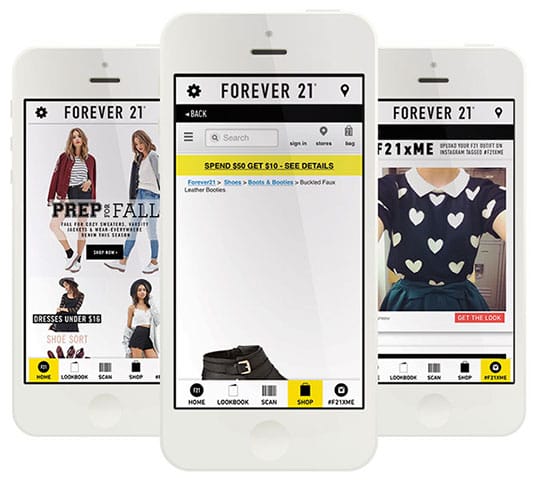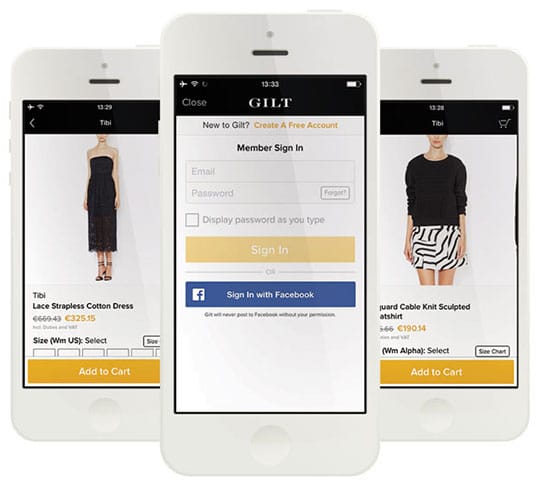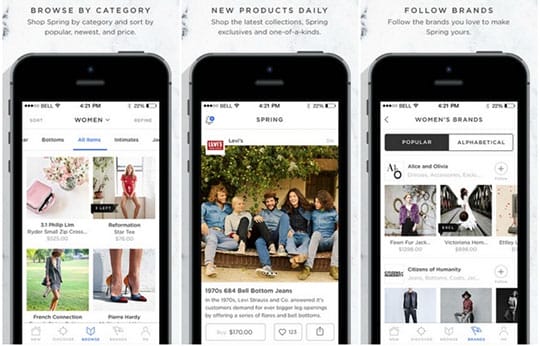Gone are the days when smartphones were considered a luxury and with that, so are the traditional means of shopping. A staggering statistic showing the increase in retail sales, in the USA can sum it all up. In the first quarter of the year 2016 itself, retail sales via smartphones grew by 101%.
That’s a pretty emphatic statement. This fact showcases just how consumers are managing their busy life schedules and optimally adjusting to the new developments in technology. Rather than being reluctant to this change, people all over the world are embracing it. And what better way for businesses to capitalize on this massive opportunity of M-commerce than the development of their exclusive mobile application!
Mobile friendly websites v/s Mobile applications:
One of the biggest decisions a small or medium sized business, that is looking to enter the mCommerce industry, has to take is one of, choosing between a mobile friendly website and a mobile application. This tradeoff is perfectly understandable. Financial constraints govern these businesses, and they just can’t afford both. Well, a study conducted on this particular subject concluded that a rational consumer spends more time on a mobile application when compared to a mobile friendly website. What’s more is that more than 40% of the people who use mobile apps for shopping, admitted to having purchased a company’s products or services more than what they previously used to in the absence of its mobile application. This might not be the case with every industry or market segment, but when it comes to retail shopping, it sure is.

So far in this article, statistics predominantly back mobile applications rather than real-time reasoning. Of course, not all readers are merely satisfied by statistics and therefore, along with it, here are a couple of reasons backing the sudden surge in the popularity of eCommerce mobile applications.
1) Mobile Apps are User-friendly and Convenient to Use:
Customers change to different mediums only and only when the new medium offers something the old medium couldn’t or because the new medium has made a process easier. Mobile applications do both, the latter more specifically. They grab the attention as they are extremely user-friendly and convenient to use. Customers have access to adequate information about the businesses products or service easily available on the home screen of their phone. It’s quicker and as a whole, extremely convenient. In fact, according to a study conducted 63% of the sample chose convenience as the main reason they prefer mobile applications to other channels.

2) Additional Features:
Going back to the first point, we mentioned about a new medium bringing in a something new to the entire process. That’s what mobile applications can do. Many applications come with features such as barcode scanners to add value to the shopping process and make it convenient for both, themselves and their customers.
3) Exclusive Benefits Mobile Apps Offer:
Other benefits such as special promotional offers, discounts, etc. are very often distributed only through mobile applications. These advantages that we are talking about go beyond the mobile application and influence the in-store customer experience as well. At present, its uses are pretty confined in this sense, reaching out to the process of redeeming coupons and availing greater discounts. But this could change in the not so far away future. Many big businesses have already implemented creative ways to utilize their mobile application to enhance in-store experiences and customer loyalty. Some examples are: Few apps allow consumers to pinpoint the position of their product in the physical store through information that is provided by the application. The possibilities are endless.

4) Advertising and Marketing feel Personal:
Apps store the purchase history of shoppers and could give them the exact kind of products and offers they are looking for. Advertising and marketing could get a lot more personalized if done through the app.
Bottom Line

The article began with an alarming statistic. So it’s only fair to try and leave the goosebumps standing at the end of this article. If you still aren’t convinced, consider this as our last ditch effort to change your perspective. The amount of time spent on shopping applications increased by a whopping 174% in 2014. What does this mean? We will leave that to your changed perspective!
This article is written by Mudra Rao. She is an I.T. engineering graduate and completed her M.B.A. in marketing. She is working as professional consultant in retail mobile apps technology at Ohoshop and keen interested in retail industry start-ups. Follow her: Facebook | Twitter | Google+ | LinkedIn.
 This article is written by Mudra Rao. She is an I.T. engineering graduate and completed her M.B.A. in marketing. She is working as professional consultant in retail mobile apps technology at
This article is written by Mudra Rao. She is an I.T. engineering graduate and completed her M.B.A. in marketing. She is working as professional consultant in retail mobile apps technology at 




